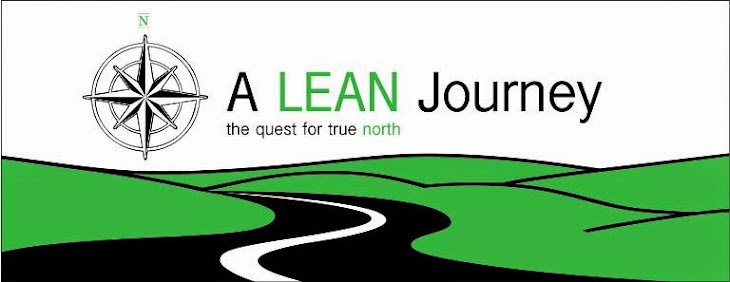This Friday (April 22, 2011) is Earth Day so I would be remiss if I didn’t mention the synergy of Lean and Green efforts and techniques to mutually eliminate waste. This combination of thinking can help you make everyday Earth day in your organization. Here is a portion of a popular article I wrote about a year ago.
Many manufacturers know the benefits of Lean manufacturing: higher productivity, better quality, reduced cycle time, plus enhanced employee engagement. Lean is excellent at marshalling different groups and individuals into a high performing team focused on rooting out waste. That relentless focus on eradicating waste makes Lean a necessary partner for Green.
Environmental waste is any unnecessary use of resources or a substance released into the air, water, or land that could harm human health or the environment. Environmental wastes are often a sign of inefficient production, and they frequently indicate opportunities for saving cost and time.
Lean efforts can lead to significant environmental gains since environmental wastes are related to Ohno’s 7 deadly wastes. The table below from EPA’s Lean and the Environment Toolkit lists the environmental impact of these wastes.
Despite the relationships between Lean’s 7 wastes and environmental wastes, many Lean implementation efforts often overlook opportunities to prevent or reduce environmental wastes. I have found adding the following 5 environmental wastes with the acronym WASTE to the traditional wastes helpful:
Water: leaks, waste streams from processes
Air: evaporation of chemicals, dust, particulate
Solid Waste: filters, excess material scrap
Toxic/Hazardous Waste: solvents, process residuals
Energy: machinery on when not in use, heat loss, oversized motors
These five wastes raise awareness of the opportunities for improvements that not only affect the process, but also working conditions and overall environmental impact.
Environmental benefits from Lean alone are often incidental; they are not a result of an environmental focus or concern. Green and Lean should be synergistic not just additive or complementary concepts. The integrated whole of both methodologies is often greater than the sum of the impacts from each approach.
 A Lean Journey
A Lean Journey 





Leave a Comment
Your email address will not be published. Required fields are marked with *